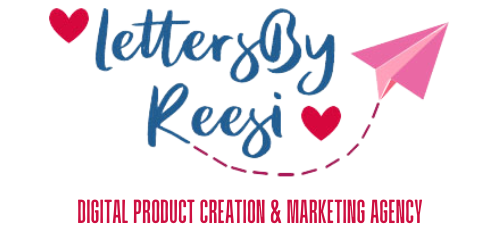If you spend more than 5 minutes online a day, you’ve probably encountered someone trying to sell you a digital product. Why is there such a fuss about digital products anyway? And the most important question for us entrepreneurs is, “How can I make money from it?
Let’s start by answering, “What is a Digital Product”? A digital product is any item that you can create and sell or distribute online without needing to physically deliver it.
From eBooks to software, digital art, and templates, these products come in various forms and have transformed how we conduct business in the digital age. In this blog, I will dive deep into the basics of digital products, discuss how you can sell your digital products, and explore different digital product marketplaces. Sounds exciting?! Let’s get to it!
What is a Digital Product?

A digital product is a good or service created, stored, and delivered electronically. Unlike physical goods, digital products are intangible and often sold through downloads or online platforms. They are accessible from anywhere in the world, making them highly scalable with low production and distribution costs. Digital products can range from software and applications to digital art, eBooks, online courses, and even digital subscriptions.
For businesses and individuals alike, selling digital products presents a unique opportunity to tap into the global market. Since digital products don’t require inventory or shipping, they offer high-profit margins with minimal overhead. This makes them a popular choice for entrepreneurs looking to start a low-cost business. If you would like to tap into this money-making opportunity, schedule a consultation and I will walk you through the ropes.
Types of Digital Products
1. E-books and Written Content
E-books, white papers, and guides are some of the most popular digital products. These can be sold on platforms like Amazon or directly from your website. Writing e-books or guides in your area of expertise allows you to package valuable knowledge and sell it to a broad audience.
2. Digital Art and Design
Artists and designers can sell digital assets, such as illustrations, icons, templates, or logos. There are many platforms and digital products marketplaces that cater to creatives who want to sell their work online.
3. Software and Apps
From simple mobile applications to complex software solutions, digital tools help solve everyday problems. Developers can create and sell their software on various platforms, including marketplaces like the Apple App Store or Google Play.
4. Online Courses and Educational Content
Education has shifted significantly toward online platforms, making educational materials a valuable digital product. You can create and sell online courses, tutorials, or training sessions that help people learn a specific skill. Platforms like Udemy and Teachable allow you to market and sell your digital courses effortlessly.
I help businesswomen develop online courses and signature programs. Book a slot and let’s talk about how you can benefit from a complete course creation service, from concept development to platform launch.
5. Music and Audio Files
Musicians, podcasters, and sound engineers can sell digital audio products. Whether it’s full music albums, sound effects, or podcast series, audio files are a lucrative digital product that has seen continuous growth.
How to Sell Your Digital Products

I know you were anxiously waiting for this part, I mean, don’t we all want to make money? Selling digital products can be incredibly profitable if done right. With numerous platforms and strategies available, here are some key methods to sell your digital products successfully:
1. Your Website
One of the most efficient ways to sell digital products is by setting up your own website. This gives you full control over your pricing, marketing, and customer data. Using e-commerce platforms like Shopify or WordPress, you can create a store to sell e-books, software, or digital art.
2. Third-Party Platforms
There are various digital products marketplaces where you can list and sell your products, such as Amazon, Etsy, or Gumroad. These platforms provide a ready-made audience, but you’ll often need to follow specific guidelines and pay a commission on each sale.
3. Social Media and Influencer Marketing
Leveraging social media platforms like Instagram, Facebook, and LinkedIn can be a powerful tool for selling digital products. You can promote your products through organic posts, paid ads, or influencer collaborations. This can help you reach a wider audience and generate more sales.
4. Selling Digital Assets on Amazon
Amazon allows you to sell digital products such as eBooks, music, and even video games. As one of the largest online marketplaces, Amazon provides massive exposure and can drive significant traffic to your products. However, you’ll need to follow Amazon’s guidelines, such as formatting eBooks for Kindle if you’re selling written content.
Benefits of Selling Digital Products

Selling digital products comes with several advantages that make it an attractive business model:
1. Low Overhead Costs
Unlike physical products, digital products don’t require storage, packaging, or shipping. Once the product is created, there are no ongoing production costs, making this a highly profitable option.
2. Scalability
Digital products can be sold to an unlimited number of people without additional production costs. This makes scaling your business easier and more efficient compared to traditional physical goods.
3. Global Reach
Since digital products are distributed online, they can be sold to customers anywhere in the world. This opens up opportunities to tap into global markets without needing a physical presence.
4. Automation
Many digital product sales can be automated, allowing you to set up a system that sells your product around the clock. Whether through automatic downloads or subscription models, automation reduces the need for constant manual involvement.
Challenges of Selling Digital Products

While the benefits are substantial, selling digital products also comes with its own set of challenges:
1. Competition
The digital product space is highly competitive, with many sellers offering similar products. To stand out, you need a unique value proposition and strong marketing strategies.
2. Intellectual Property Issues
Because digital products are easy to copy, piracy and intellectual property theft can be significant concerns. Ensuring proper licensing and protection of your digital assets is essential.
3. Marketing and Visibility
Selling digital products requires a robust marketing strategy to stand out in a crowded marketplace. Whether you’re selling digital assets on Amazon or your website, you’ll need to invest time in SEO, social media, and paid advertising to reach your target audience.
FAQs
1. What are some examples of digital products?
Some common examples of digital products include eBooks, online courses, software, templates, digital art, and music files.
2. Can I sell digital products on Amazon?
Yes, you can sell digital products such as eBooks, music, and software on Amazon. You will need to comply with Amazon’s specific guidelines for digital content.
3. What is the best platform to sell digital products?
The best platform depends on your product type and audience. For eBooks, Amazon Kindle is ideal, while for courses, platforms like Teachable and Udemy are popular. If you want complete control over your sales, selling from your website is the best option.
4. How do I protect my digital products from piracy?
To protect your digital products, you can use digital rights management (DRM) software, watermarks, or secure download links to prevent unauthorized sharing or copying.
5. Do I need a special license to sell digital products?
In most cases, you don’t need a special license to sell digital products. However, ensure that you own the intellectual property rights to the content you’re selling.
Conclusion
I have helped many women entrepreneurs, who are coaches, creatives, consultants, and who are in other areas of interest, grow their income by leveraging digital products. Understanding what is a digital product and how to successfully sell your digital assets will open new revenue streams and opportunities for growth. With low overhead costs, global reach, and scalability, digital products offer a compelling business model for entrepreneurs and creatives alike. Whether you’re looking to sell courses, books, digital art, or software, the world of digital products offers limitless potential.
Ready to start selling your digital products? Begin by scheduling a consultation and I will gladly walk the journey with you. The digital product marketplace is waiting for you, and with the right strategy, your success is just a click away!








